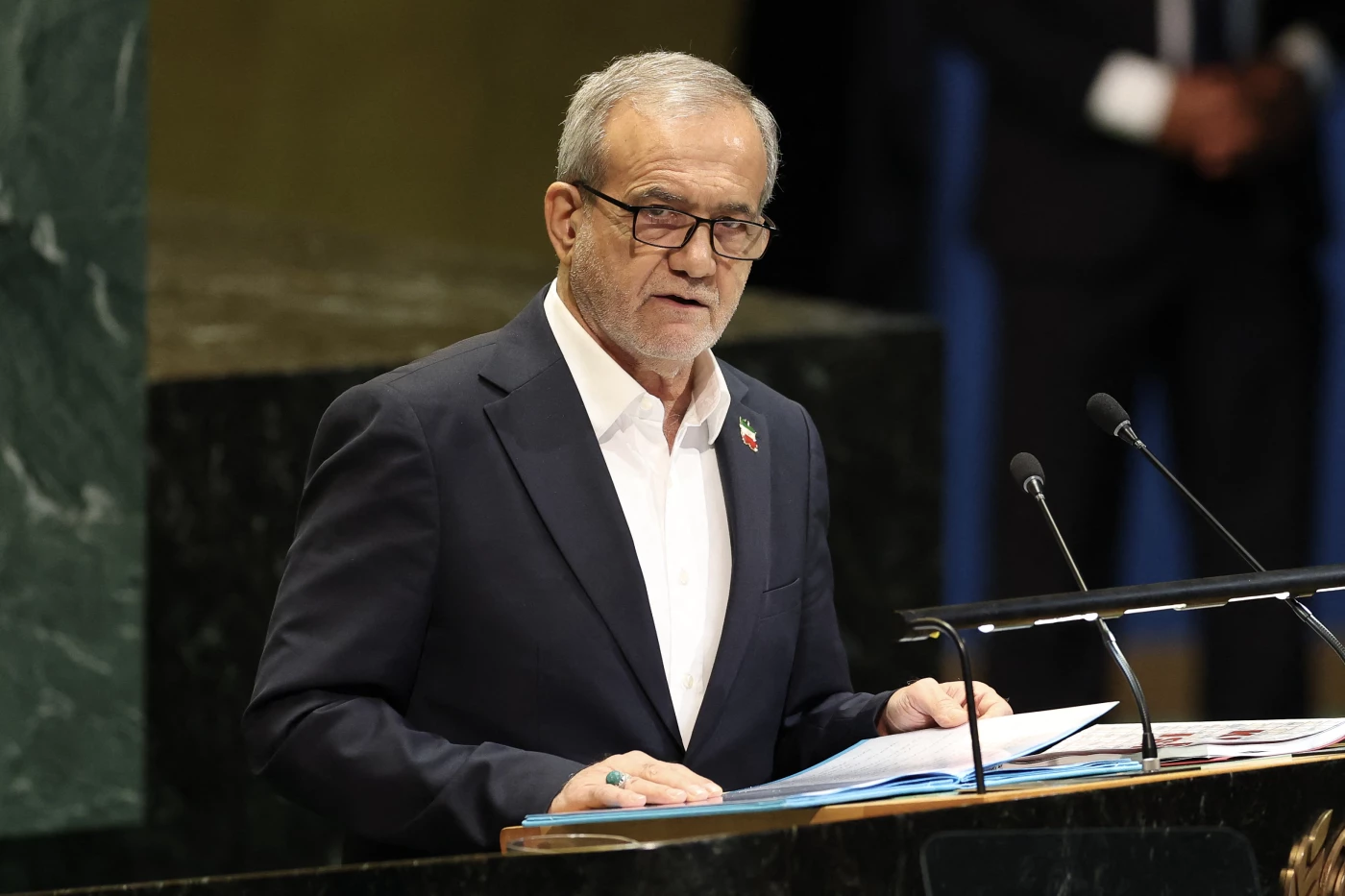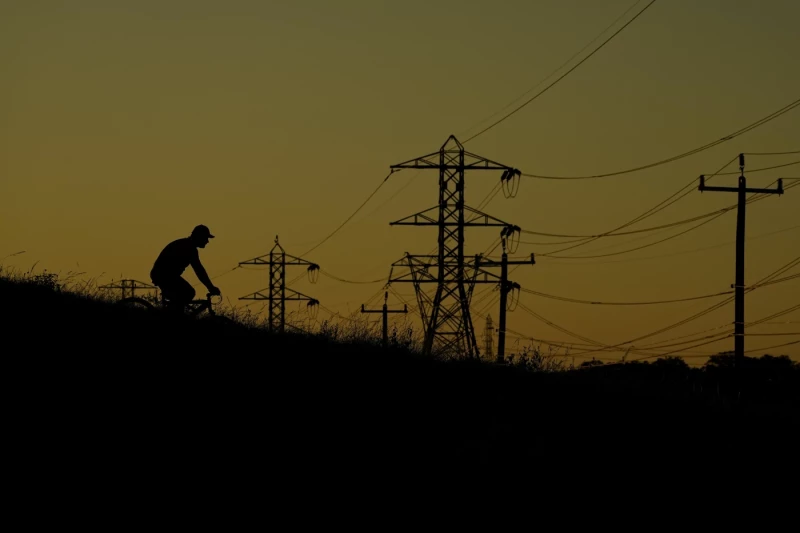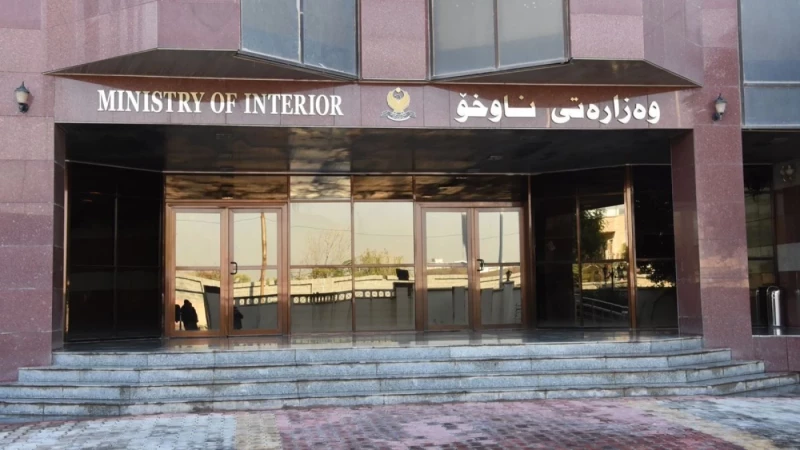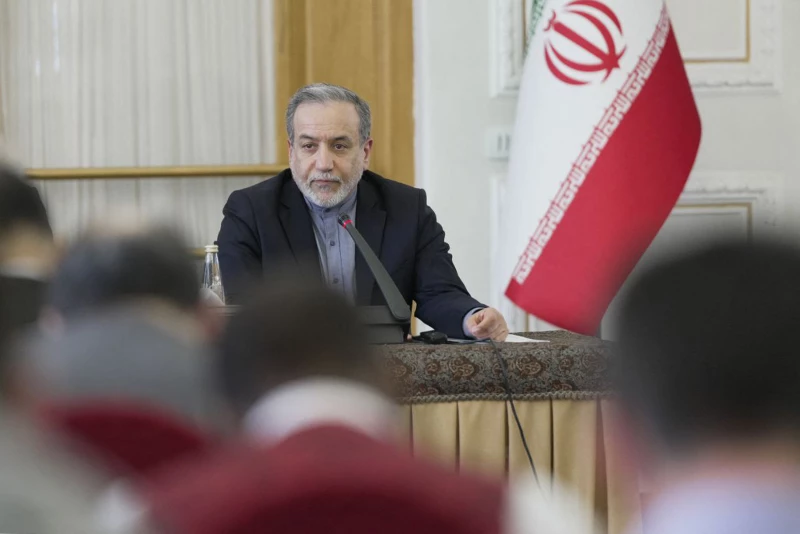ERBIL, Kurdistan Region of Iraq - Iranian President Masoud Pezeshkian on Wednesday addressed the UN General Assembly, bringing to the fore scathing criticisms of Israel for its actions in Gaza, as well as Israeli and US strikes on Iran during the 12-Day War, and European countries for seeking to reimpose nuclear sanctions on Tehran via the "snapback" mechanism.
The Iranian president accused Israel of perpetrating a genocide in Gaza, describing images of "emaciated children in the arms of their mothers" as the Israeli campaign in the Palestinian territory nears the beginning of its third year. He further noted that these actions take place with "the full support of the most heavily armed regime on the face of the earth," in reference to the US.
"Would you countenance these acts for yourselves?" the Iranian leader rhetorically asked the audience of heads of state from around the globe.
Pezeshkian proceeded to criticize the "scheme" of a Greater Israel, a territorial ambition previously restricted to the fringes of Israeli politics with which Israeli Prime Minister Benjamin Netanyahu in August said he feels a "connection," calling it "ludicrous and delusional."
The president also lashed out at Israel's attacks on Iran during the June war between the two foes, showing images of Iranian civilians who were killed in the conflict and saying that the "brazen aggression dealt a heavy blow to international trust and the prospects for regional peace."
Once more addressing the audience, Pezeshkian asked: "Would you approve of attacks on your facilities, the targeting of your journalists, and the killing of your scientists?"
Also salient in his address was the issue of nuclear sanctions reimposition. The Iranian attendance at the yearly meeting comes as Iran is on the verge of facing the "snapback mechanism" from European countries, a move that would reinstate international sanctions due to an alleged lack of cooperation regarding Tehran's nuclear program.
Under the 2015 nuclear accord with world powers, officially called the Joint Comprehensive Plan of Action (JCPOA), from which the US unilaterally withdrew in 2018, the snapback mechanism permits the reactivation of UN sanctions if Iran is deemed in violation of its nuclear obligations.
The Iranian president called out the E3 countries (France, the UK, and Germany) for triggering the reactivation mechanism, dismissing accusations of non-cooperation as "spurious" and saying that the European countries "circumvented legal obligations" and "disparaged Iran's sincere efforts as insufficient."
"I hereby declare once more before this assembly that Iran has never sought and will never seek to build a nuclear bomb," Pezeshkian reiterated.
Iran’s Supreme National Security Council announced Saturday that Tehran will be forced to cease cooperation with the International Atomic Energy Agency (IAEA) due to "the ill-considered actions of three European countries regarding the Iranian nuclear issue," despite Iranian Foreign Minister Abbas Araghchi signing a cooperation agreement with the UN's nuclear watchdog in Cairo in early September.
Iran has repeatedly threatened to withdraw from the Nuclear Non-Proliferation Treaty (NPT) if the snapback mechanism takes effect.
Iranian diplomats have complained of draconian restrictions placed on their activities in New York, including limitations on travel and shopping. Iranian foreign ministry spokesperson Esmail Baghaei on Wednesday said that the restrictions constitute a "new low in terms of showcasing the extent of animosity of US administration towards Iran," accusing Washington of "systematic harassment of Iranian diplomats,” which he said has obstructed delegates from attending “several multilateral events that were held outside the so-called ‘permitted parameters’ during this week only."
The US State Department announced Tuesday that the restrictions are part of its "maximum pressure" policy against Tehran. The delegation is restricted from entering "luxury shops" and is only permitted to travel to "the areas strictly necessary," a statement said, stating that the people of Iran are suffering from poverty and energy shortages.
Pezeshkian on Tuesday said that participating in the General Assembly "provides an exceptional and unique opportunity to present the positions and views of the Islamic Republic of Iran, as representatives and officials from all countries of the world are present there," Iranian state media reported.



 Facebook
Facebook
 LinkedIn
LinkedIn
 Telegram
Telegram
 X
X


